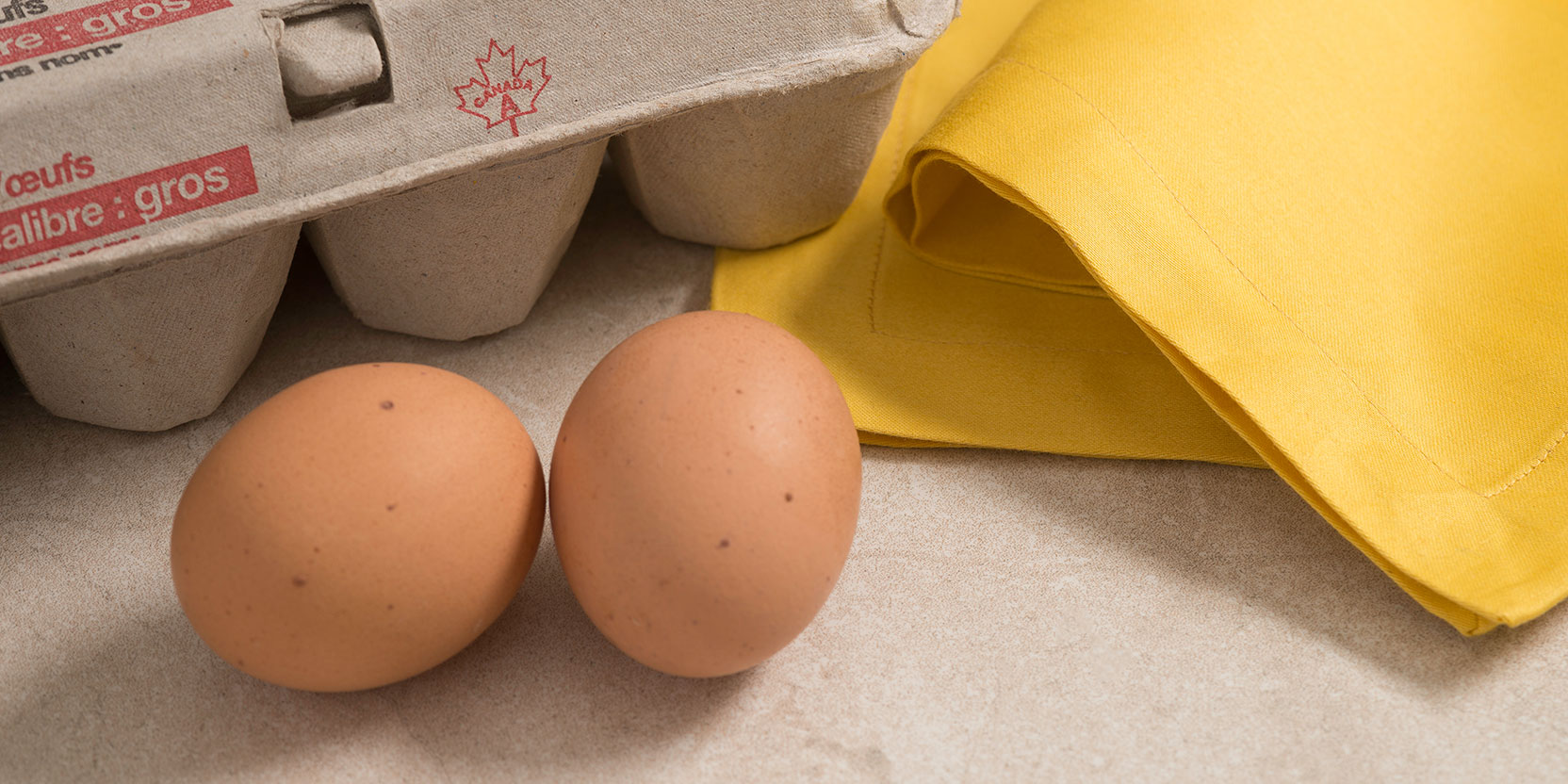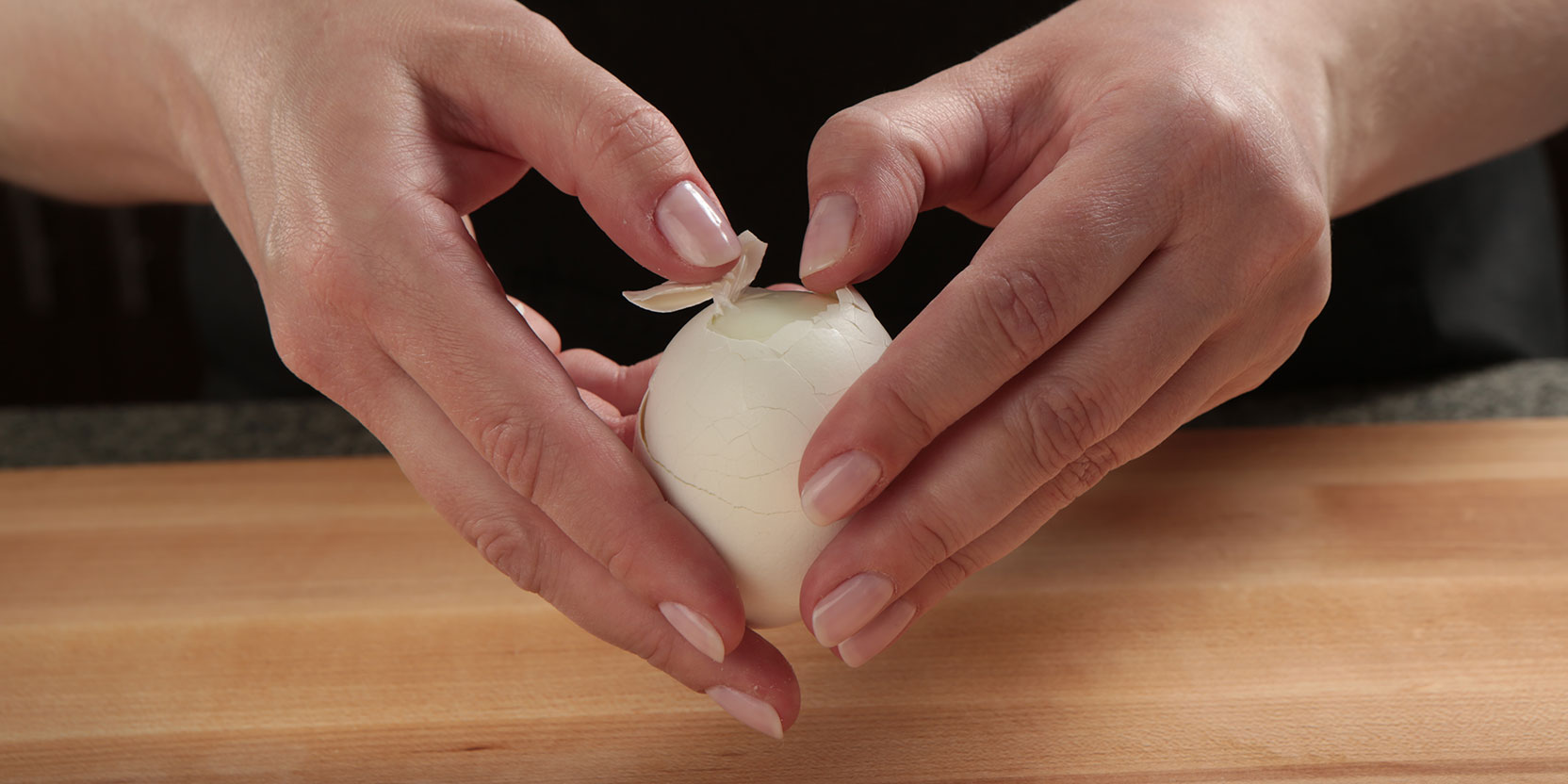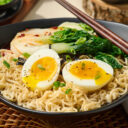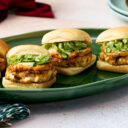Recipes
Perfect Hard Boiled Eggs

This method for hard boiling eggs is simple and produces a tender and delicious egg every time! Cooking times vary depending on the type of cooktop (electric, gas, and induction) and size of egg, among other factors. Play around with the timing based on your hard boiled egg preferences.
Ingredients
- Water
- 2 eggs
Instructions
- Step 1
Place cold eggs in a single layer in a saucepan. Cover with at least 1 inch (2.5 cm) cold water over top of the eggs.
How to know if an egg is cooked or raw?

- Step 2
Cover saucepan and bring quickly to a boil over a high heat. Immediately remove pan from heat to stop boiling. Let eggs stand in water for 12 minutes (large eggs).
- Step 3
Drain water and immediately run cold water over eggs until cooled.
Two ways to peel hard boiled eggs!

 Did You Know
Did You Know
Eggs travel from the farm to the store in less than a week.
 Tips
Tips
- If cooking more eggs, they should fit in the saucepan in a single layer.
- Add a few minutes cooking time for extra large eggs.
- For easiest peeling, use eggs that have been in the refrigerator the longest. The less fresh the egg, the easier it is to peel.
- Cool eggs quickly once cooked by placing them in cold water. Rapid cooling helps prevent a green ring from forming around the yolks.
- To peel a hard boiled egg, crackle the shell all over by tapping the egg on a hard surface, then roll the egg between your hands to loosen the shell. Begin peeling at the large end. Hold the egg under cold running water or dip it in a bowl of water to help remove the shell.
- Keep a supply of hard boiled eggs in your refrigerator for quick meals and snacks. Use hard boiled eggs within one week.
- To determine whether an egg is hard boiled or raw, spin it. If it spins round and round evenly, it is hard boiled. If it wobbles while spinning, it is a raw egg.
Nutrition Facts
| Per 2 eggs serving | |
|---|---|
| Calories | 148 |
| Fat | 11 g |
| Saturated Fat | 3 g |
| Trans Fat | 0 g |
| Carbohydrate | 2 g |
| Fibre | 0 g |
| Sugars | 0 g |
| Protein | 12 g |
| Sodium | 123 mg |



